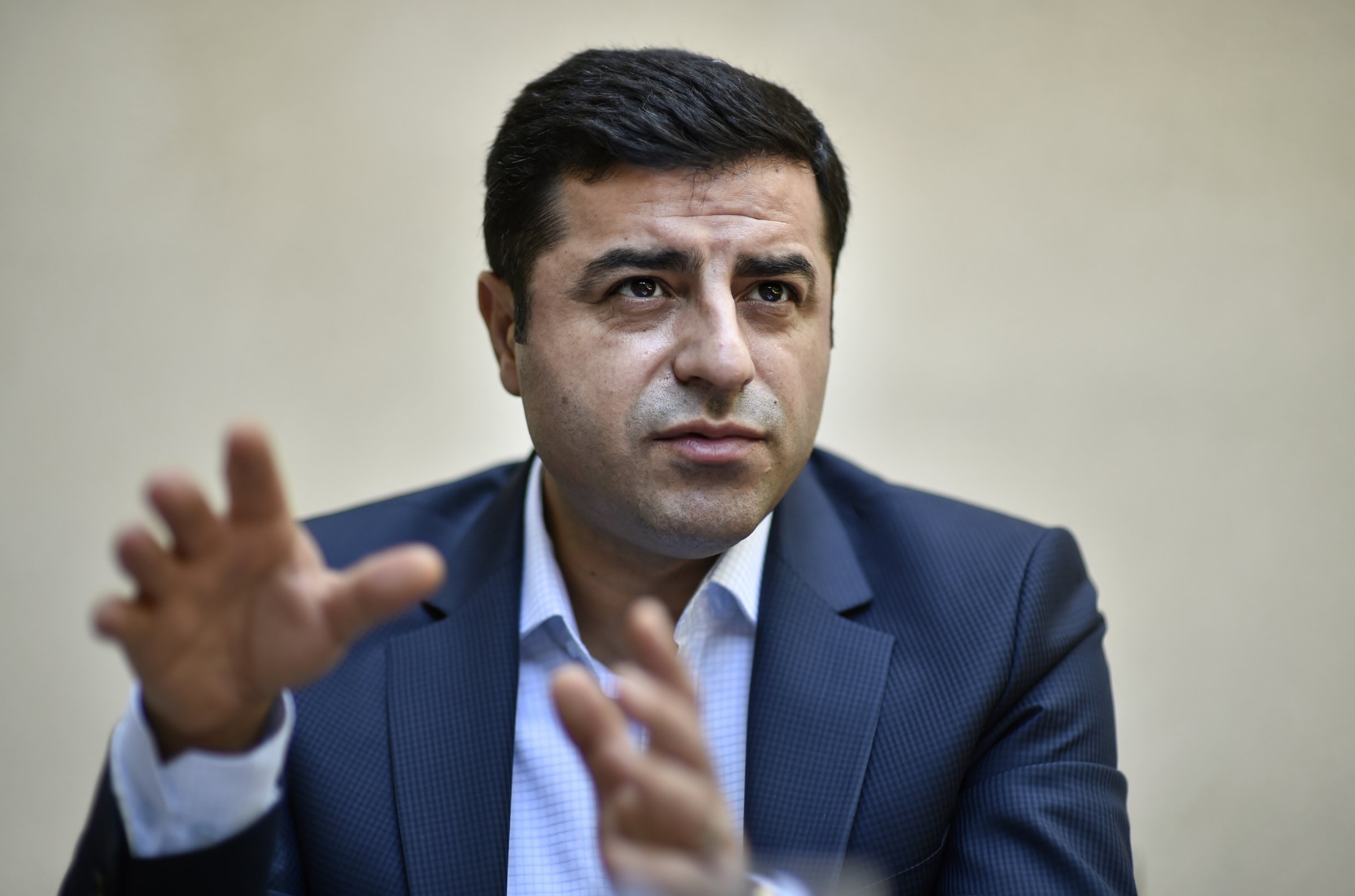
Correction: This article was amended on Nov. 12, to show the correct constituency Selahattin Demirtas represents in parliament.
Selahattin Demirtas is the leader of the HDP, arguably Turkey’s most important opposition party, and one of the most important Kurdish politicians in the country, but he tells TIME he has not spoken to Turkish President Recep Tayyip Erdogan in over three years.
The last time the two were in touch was in 2012. The Syrian military had just shot down a Turkish reconnaissance jet over the Mediterranean. Demirtas and other opposition officials sat down with Erdogan to discuss Turkish policy toward Syria, which was in the early phases of its bloody civil war. Erdogan was Prime Minister at the time.
“We talked about how it’s important to at least negotiate with the Kurds [in Syria] at that time,” he says in a rare interview in his office in the southeastern city of Diyarbakir, which is the center of Kurdish culture and politics in Turkey. “We said that supporting opposition groups in Syria could also bring radical Islamist groups on the agenda. That’s become a reality today. When you look back, we were right.”
Meet the Kurdish Women Taking the Battle to ISIS
![18-year-old YPJ fighter Torin Khairegi: “We live ina world where women are dominated by men.We are here to take control of our future..I injured an ISIS jihadi in Kobane. When he was wounded, all his friends left him behind and ran away. Later I went there and buried his body. I now feel that I am very powerful and can defend my home, my friends, my country, and myself. Many of us have been matryred and I see no path other than the continuation of their path." Newsha Tavakolian for TIME Zinar base, Syria "I joined YPJ about seven months ago, because I was looking for something meaningful in my life and my leader [ Abdullah Ocalan] showed me the way and my role in the society. We live in a world where women are dominated by men. We are here to take control of our own future. We are not merely fighting with arms; we fight with our thoughts. Ocalan's ideology is always in our hearts and minds and it is with his thought that we become so empowered that we can even become better soldiers than men. When I am at the frontline, the thought of all the cruelty and injustice against women enrages me so much that I become extra-powerful in combat. I injured an ISIS jihadi in Kobane. When he was wounded, all his friends left him behind and ran away. Later I went there and buried his body. I now feel that I am very powerful and can defend my home, my friends, my country, and myself. Many of us have been matryred and I see no path other than the continuation of their path."](https://api.time.com/wp-content/uploads/2015/04/kurdish-women-fighters-syria-isis-newsha-tavakolian-09.jpg?quality=75&w=2400)
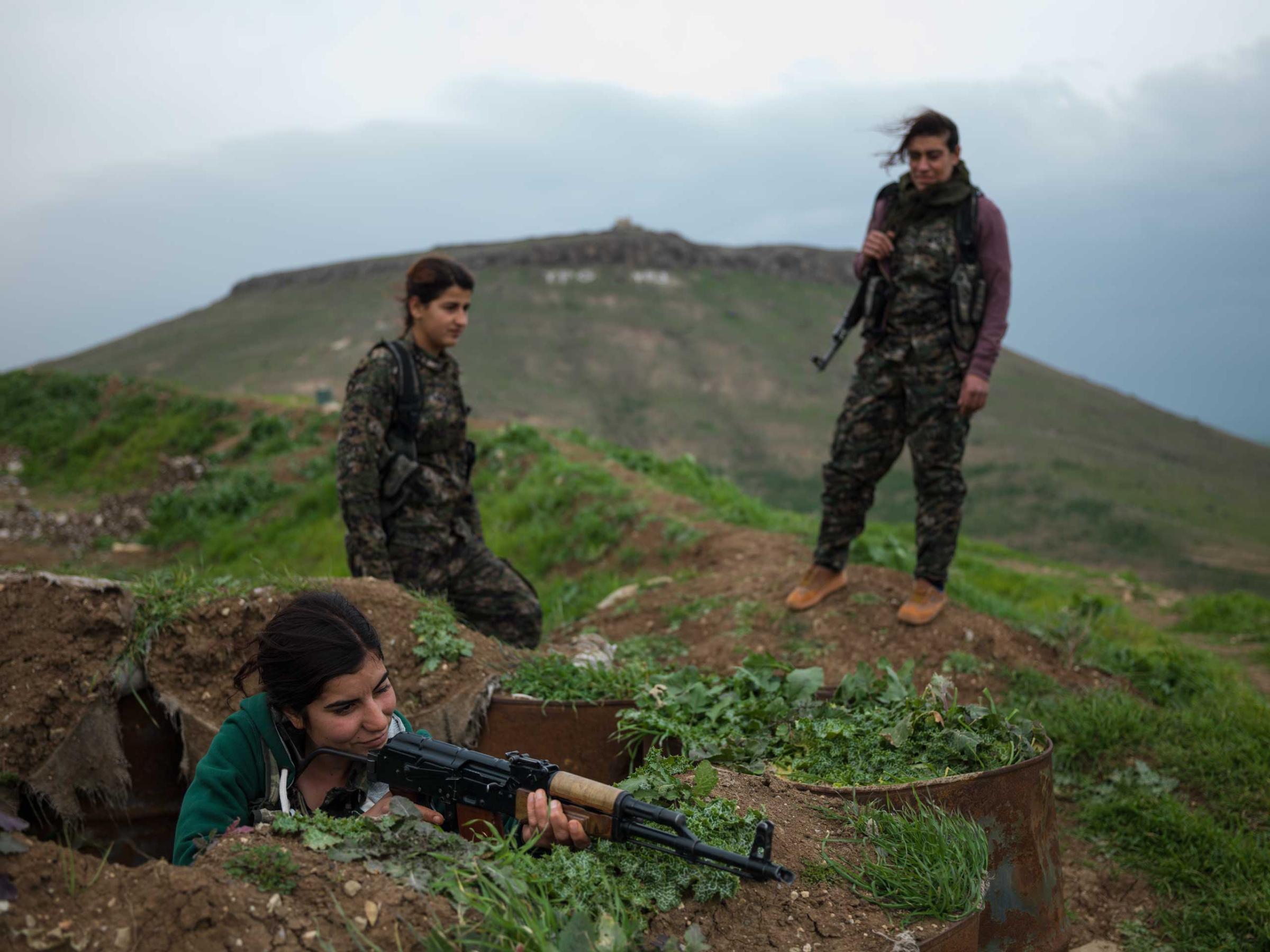
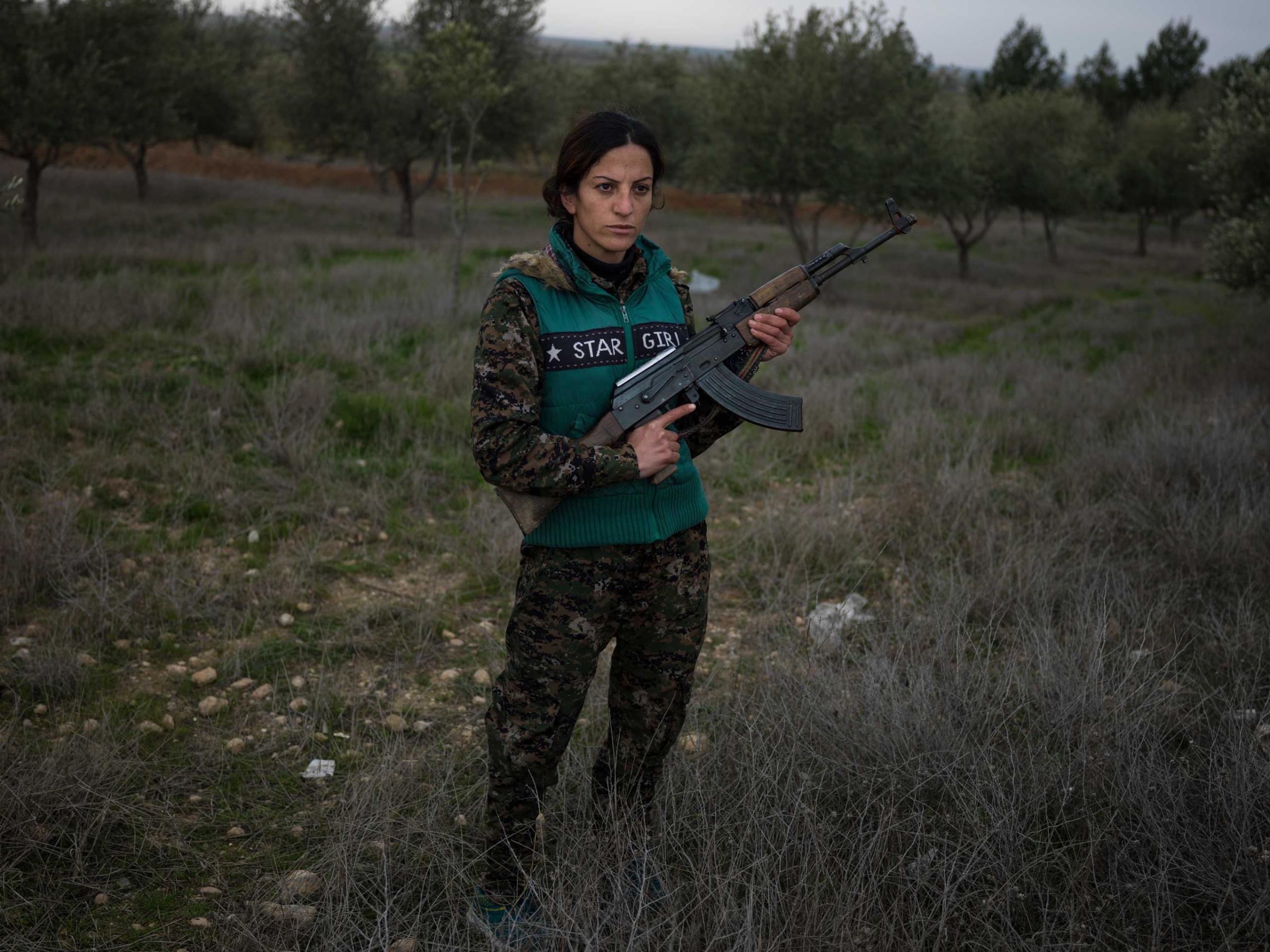
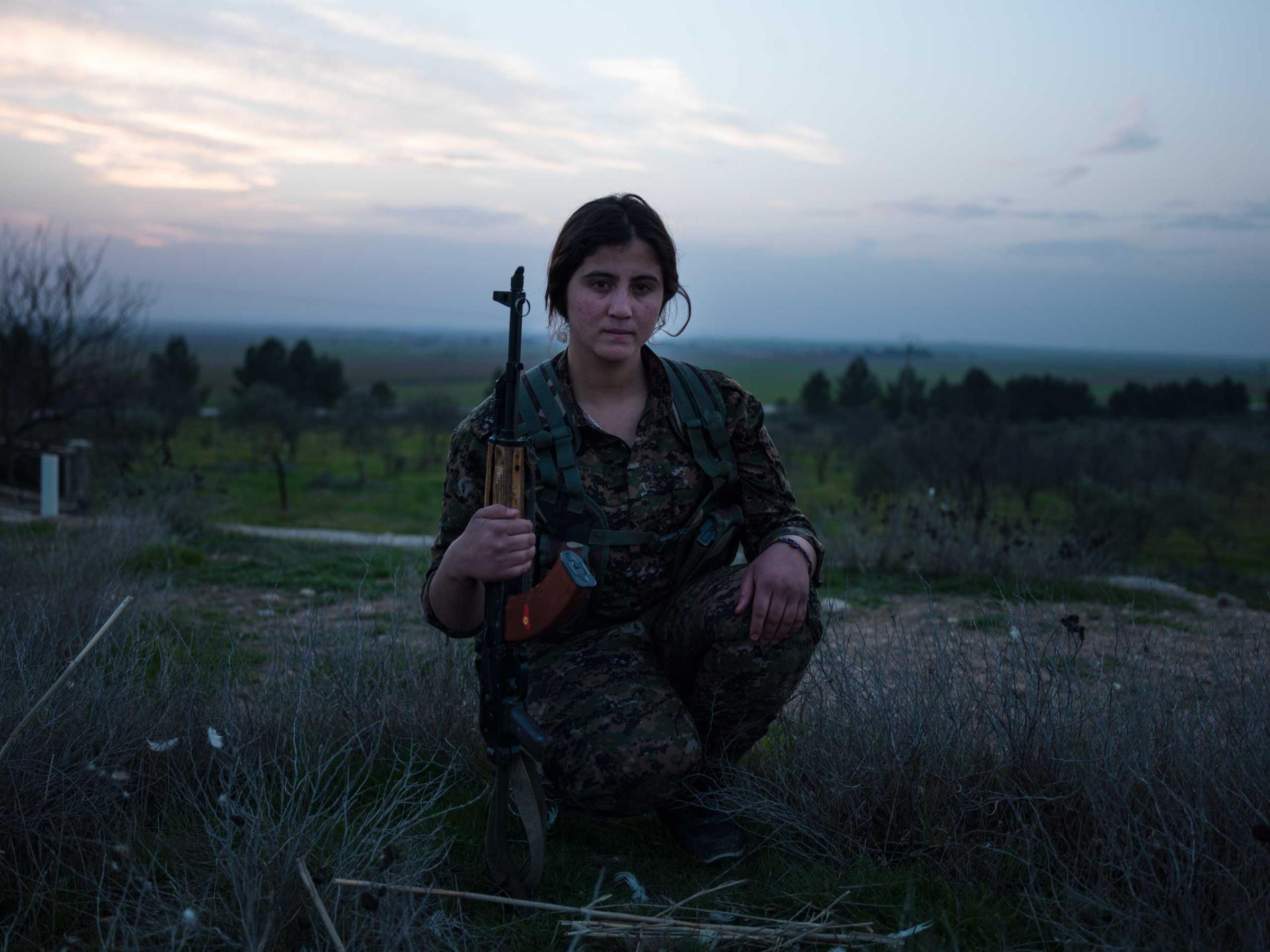
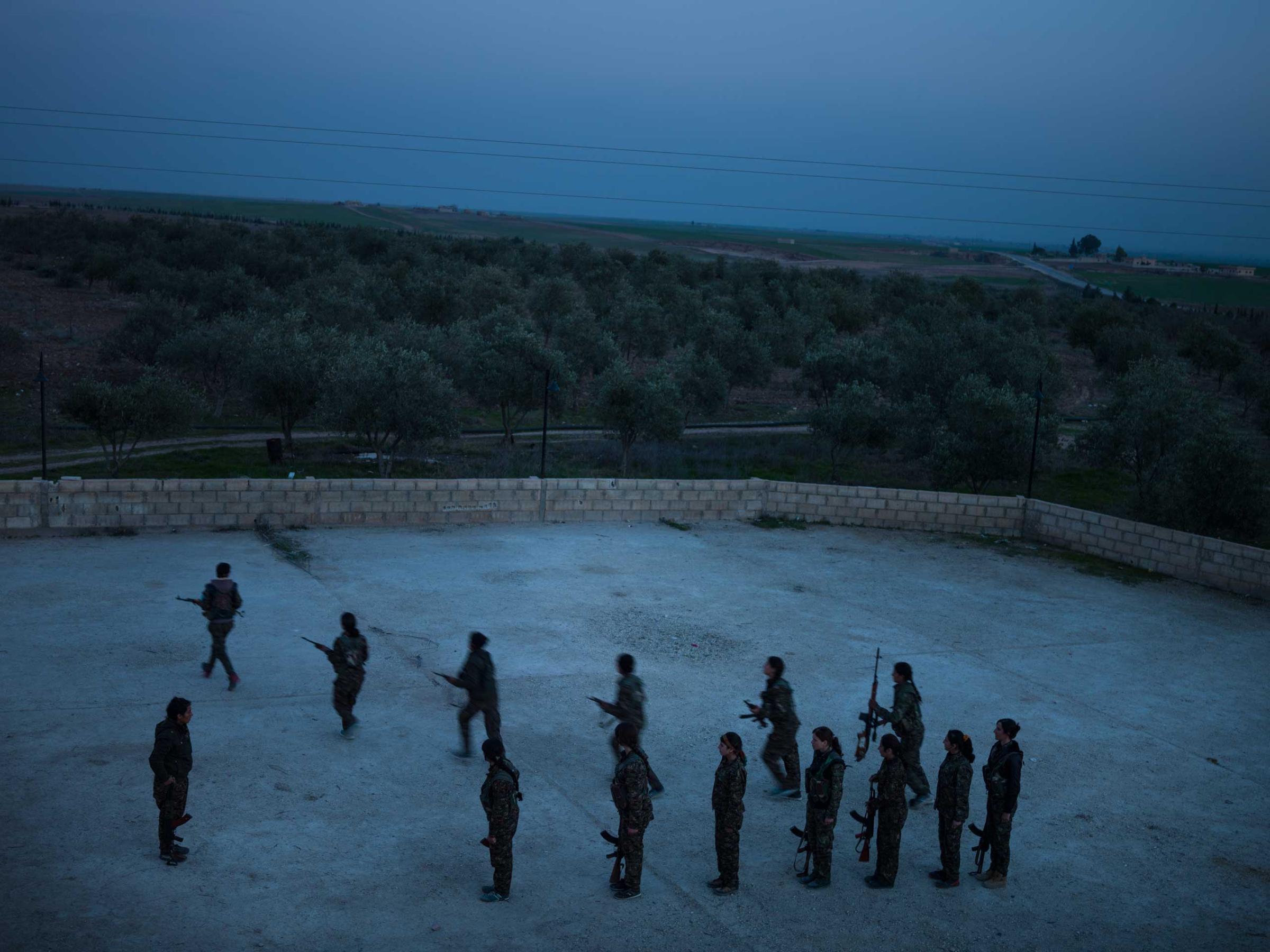
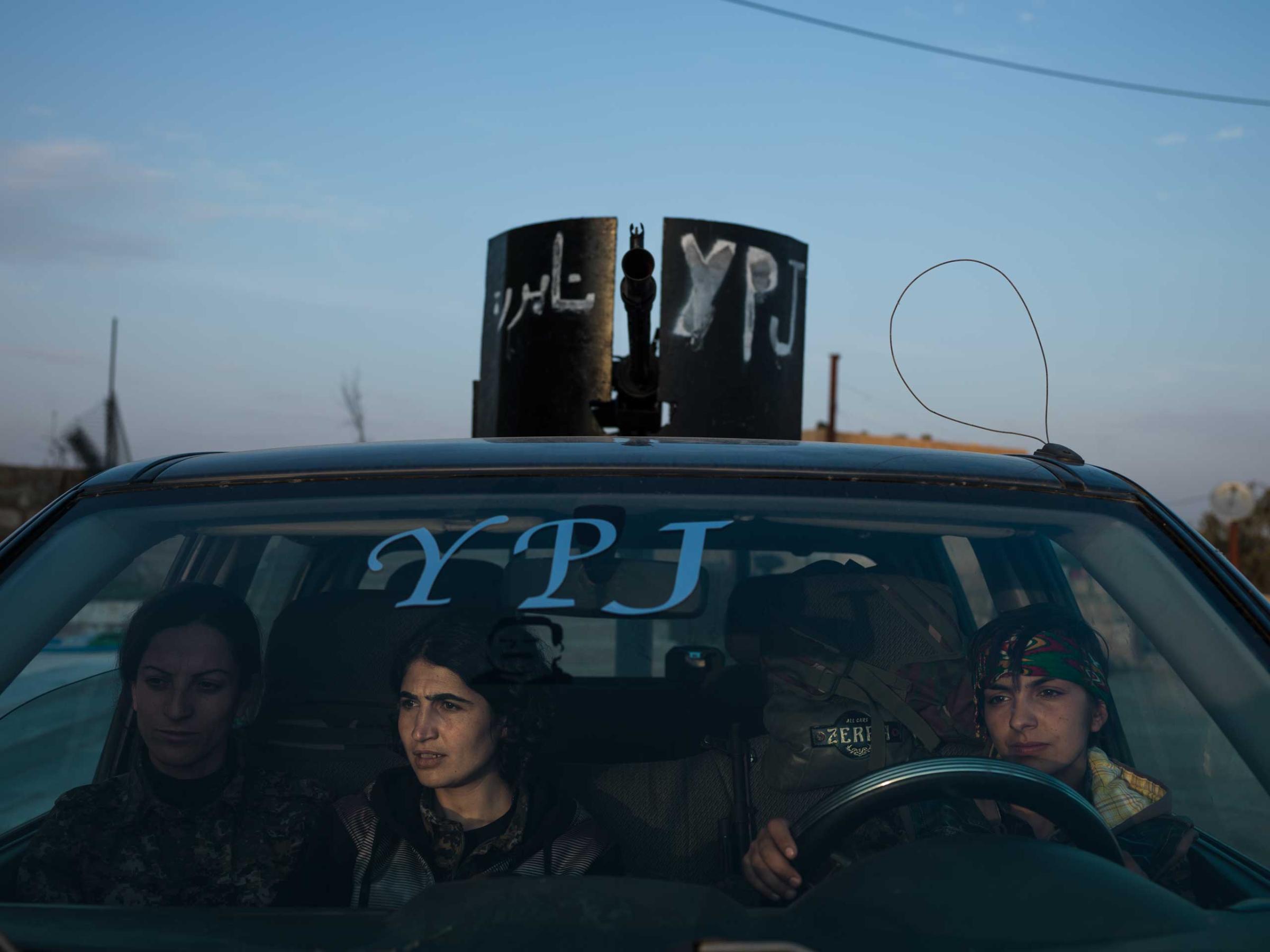
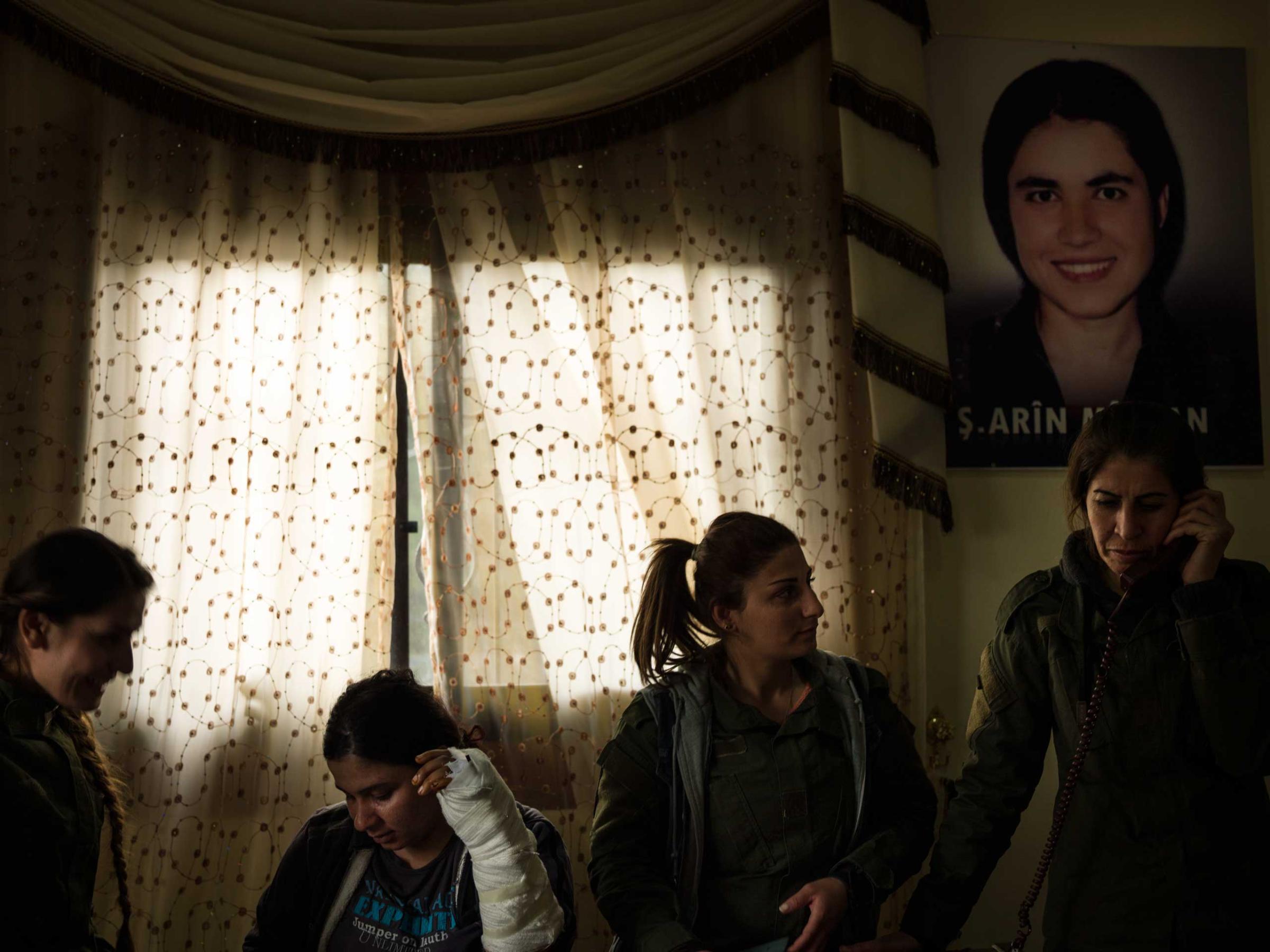
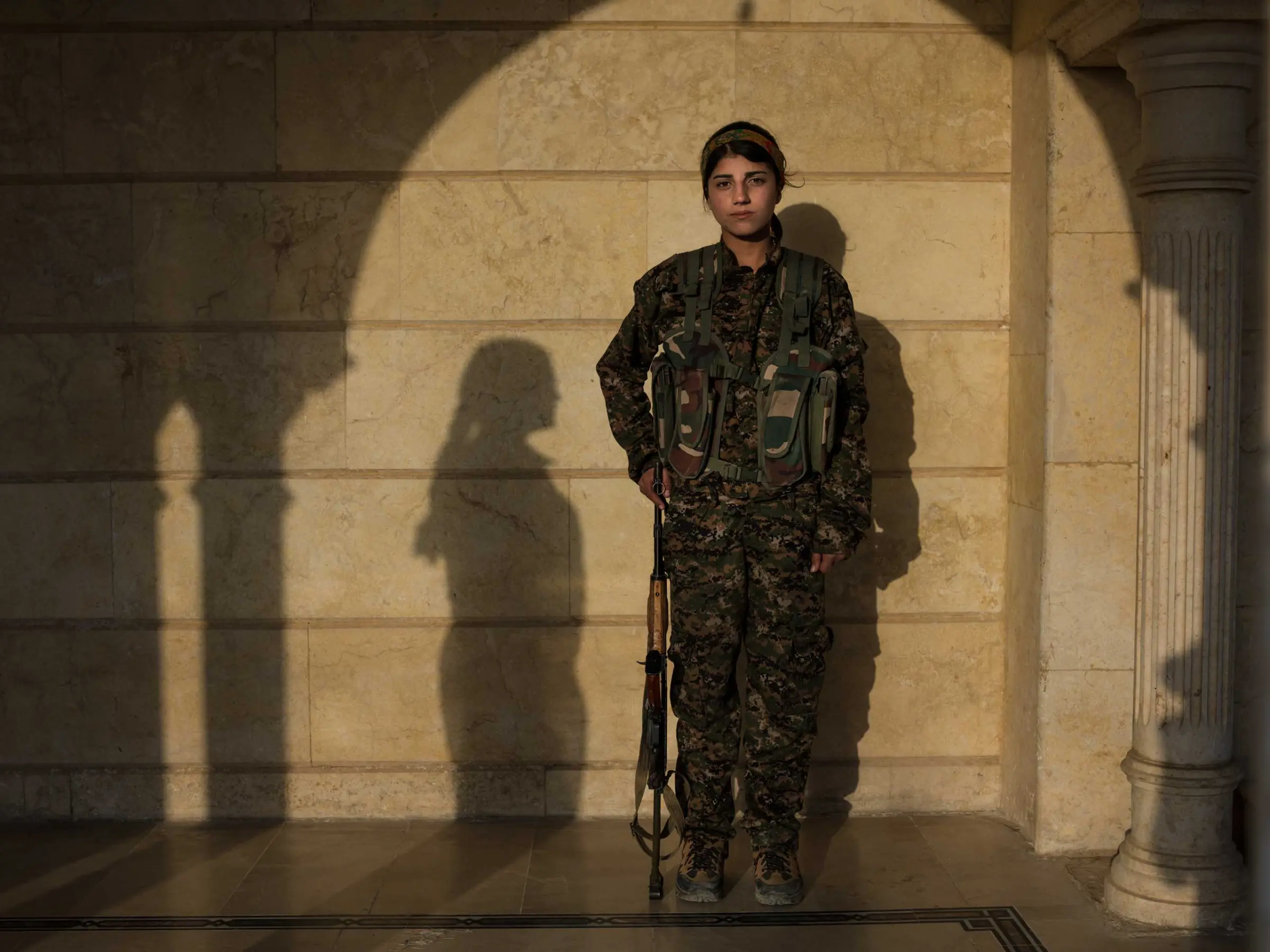
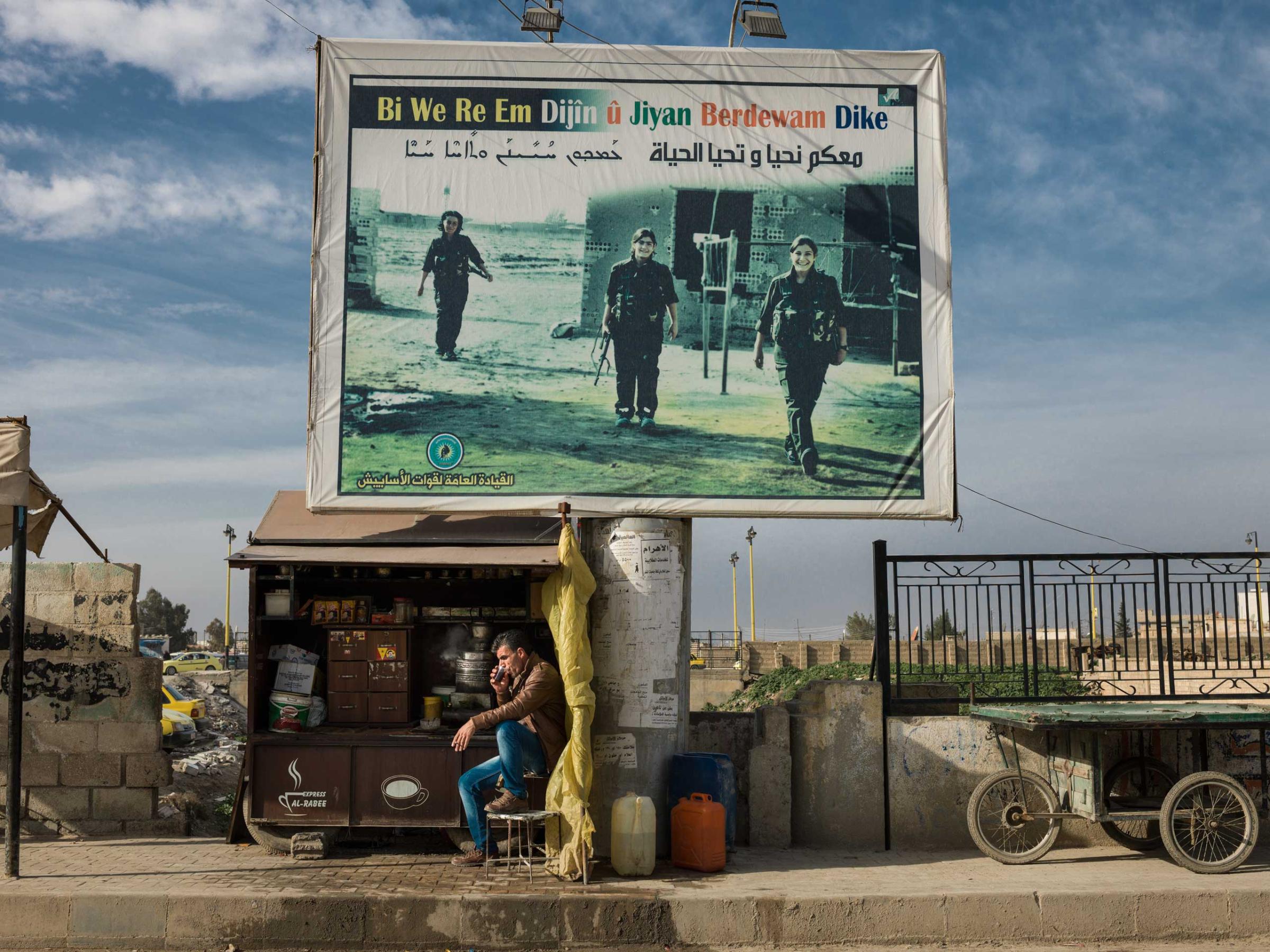
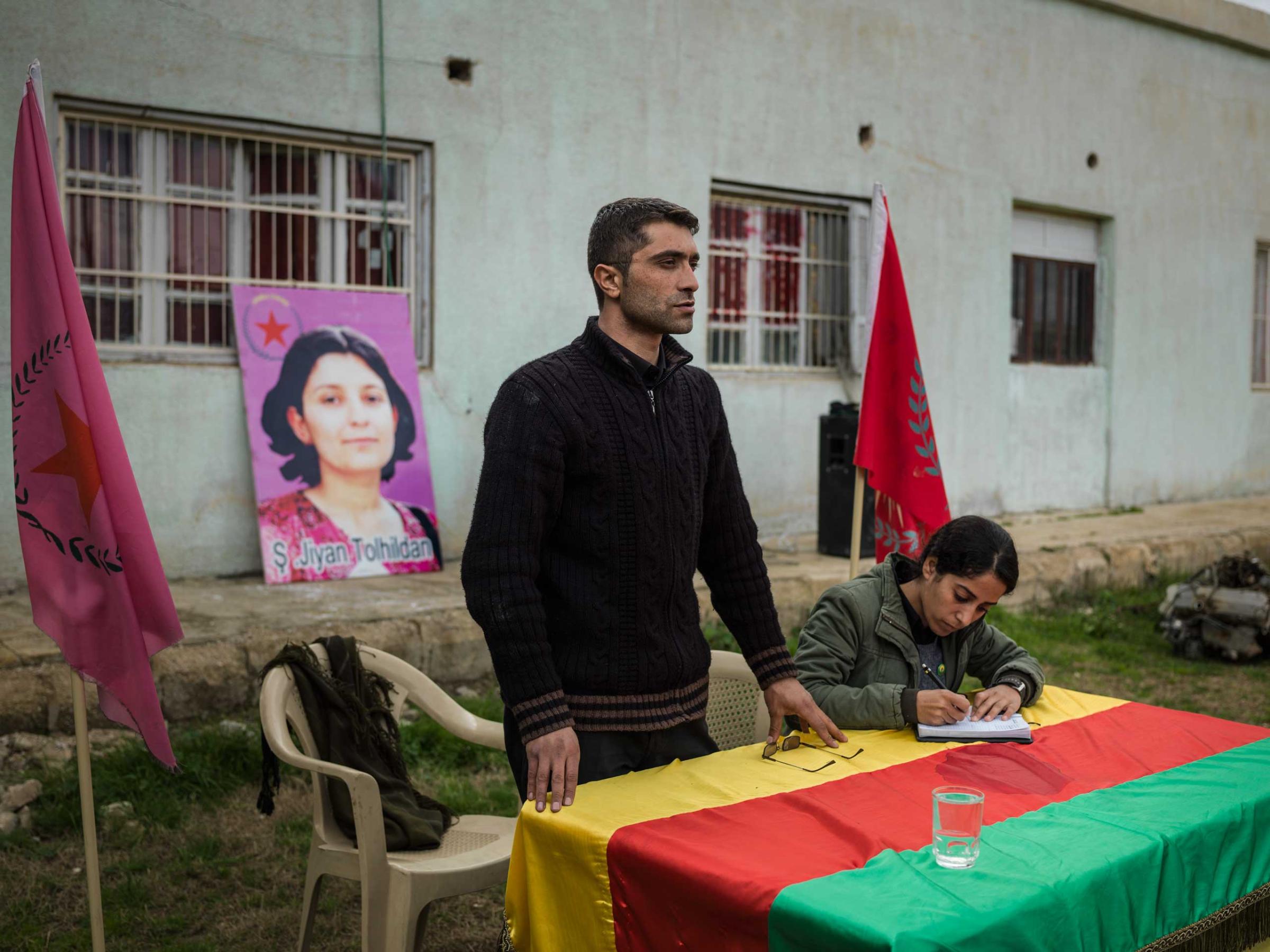
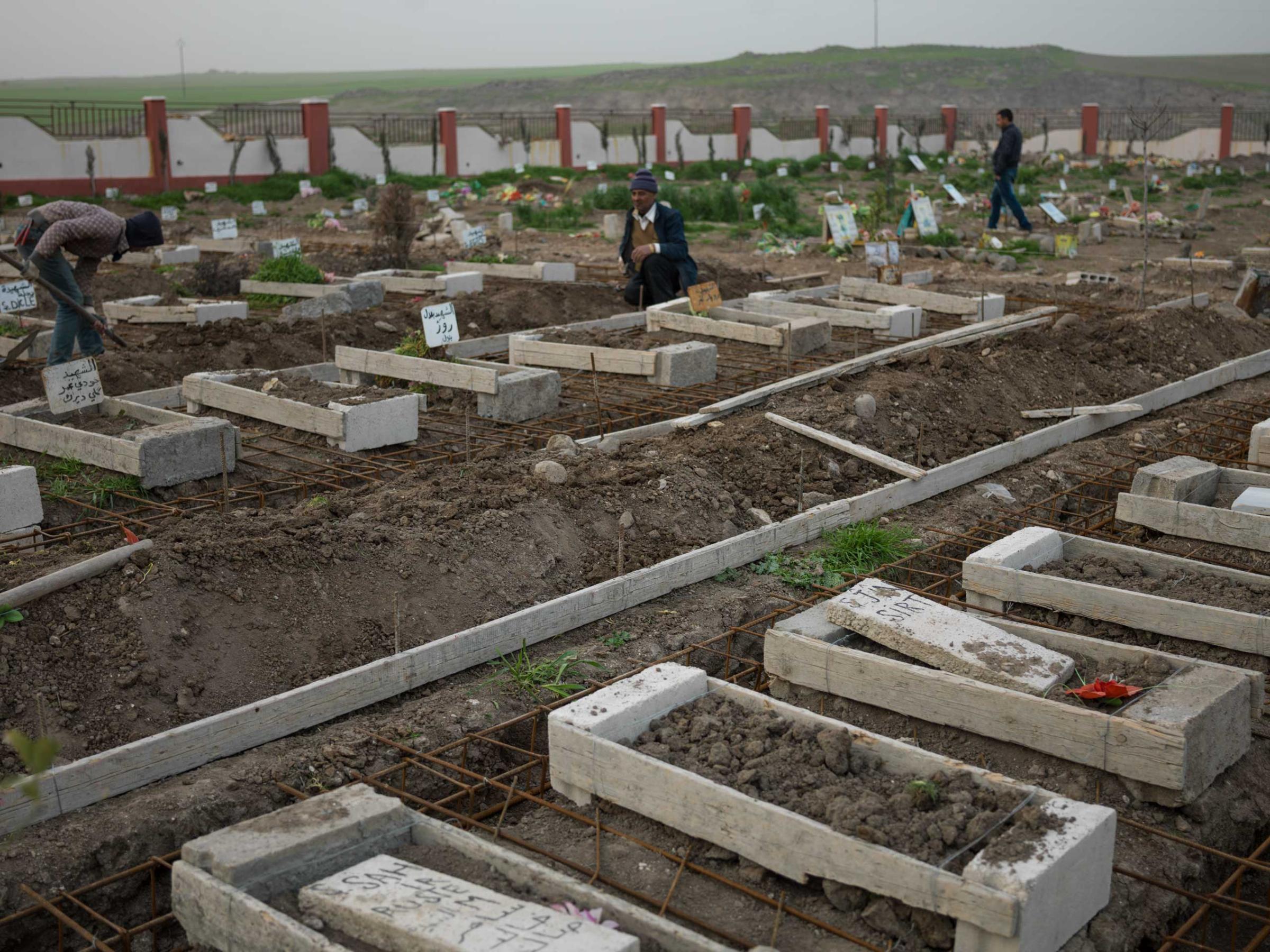
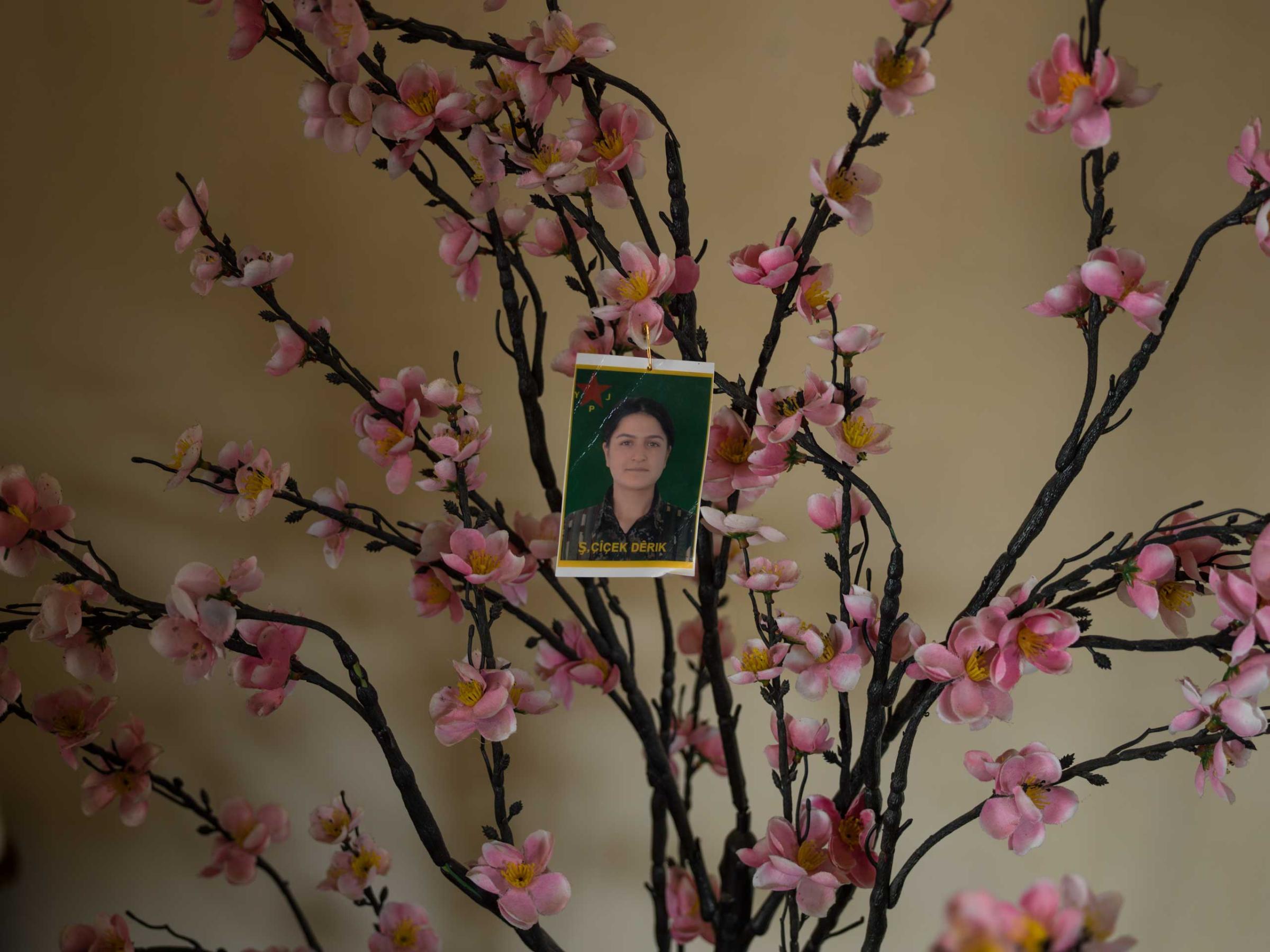
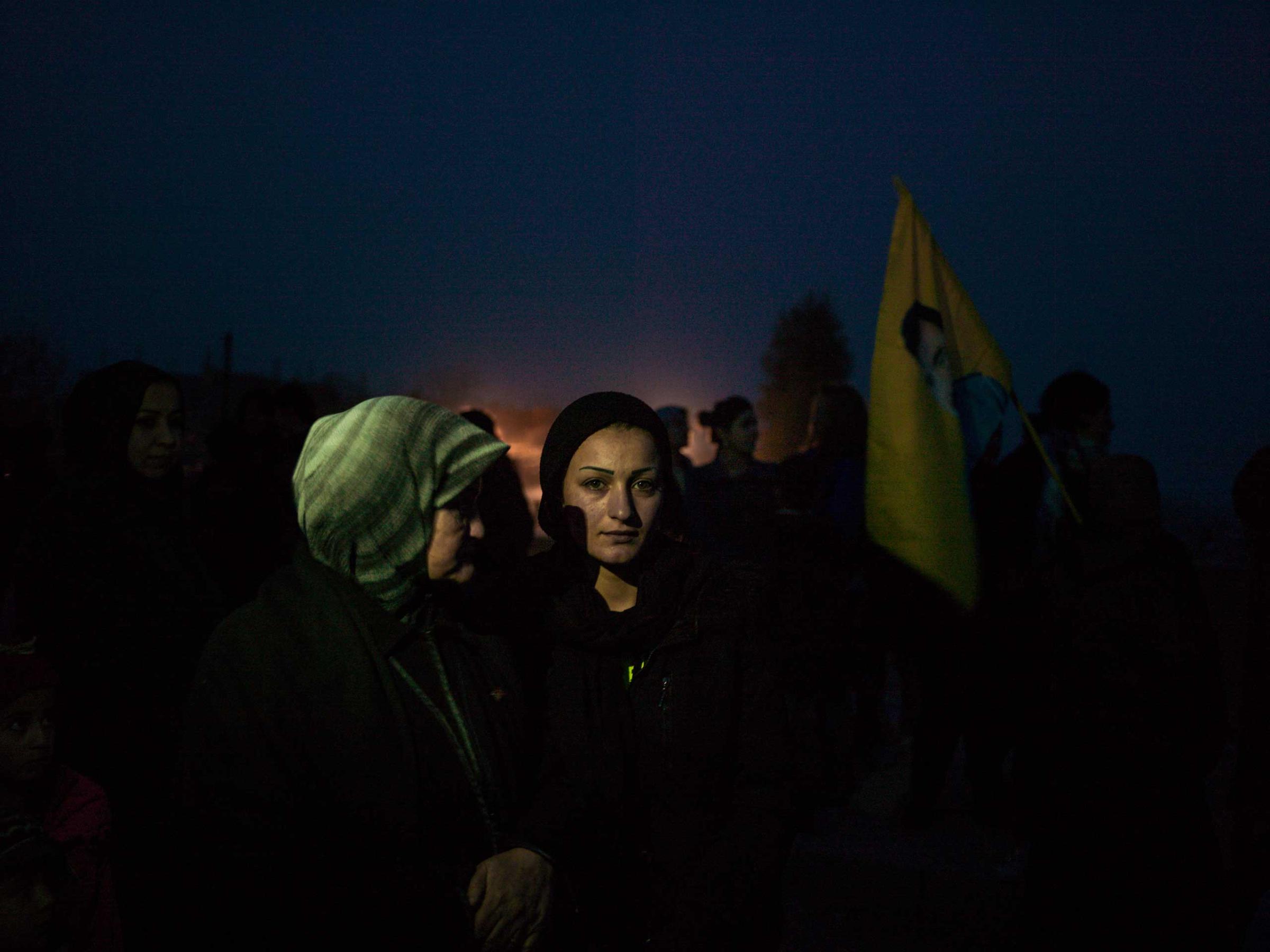
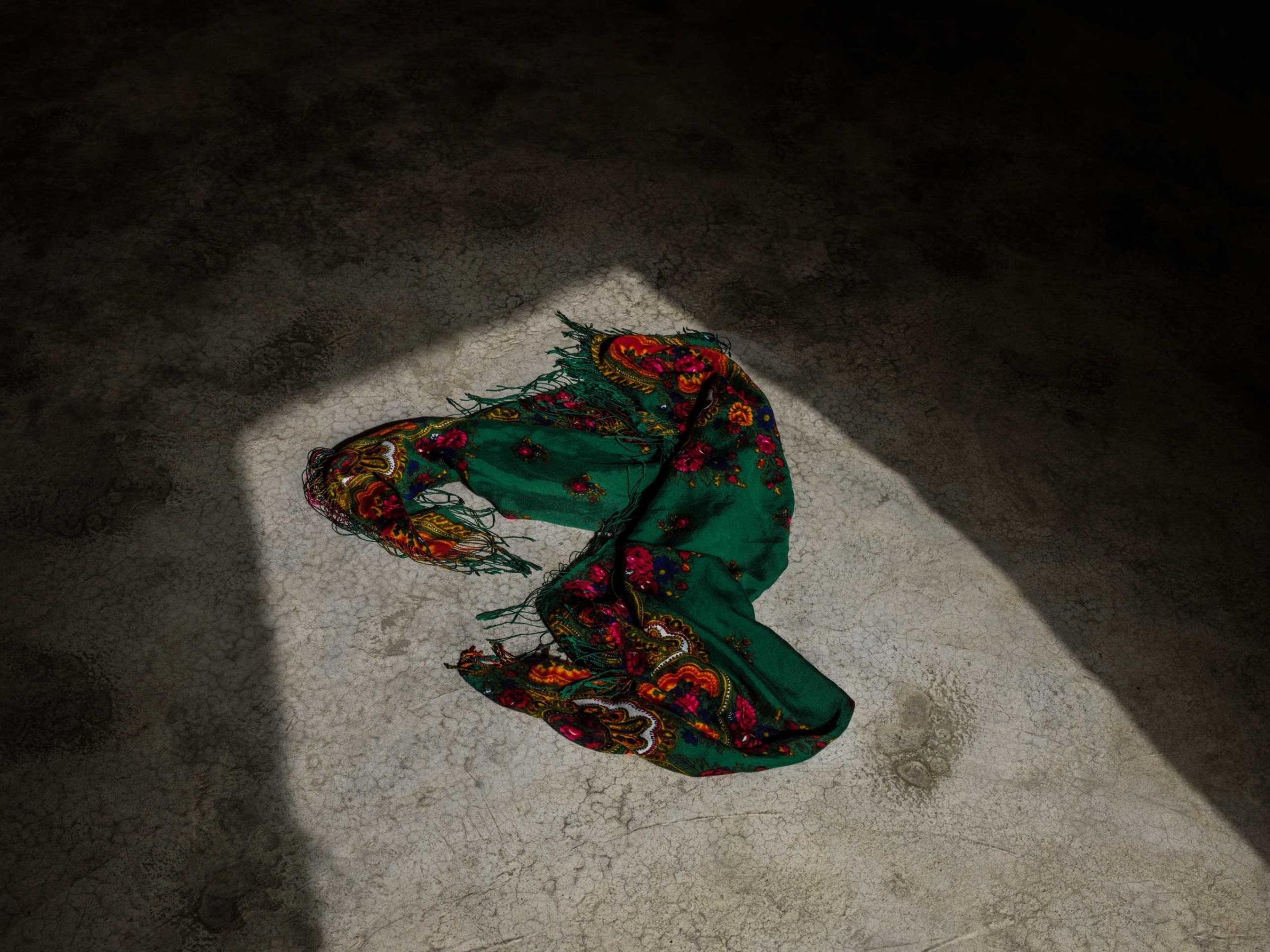
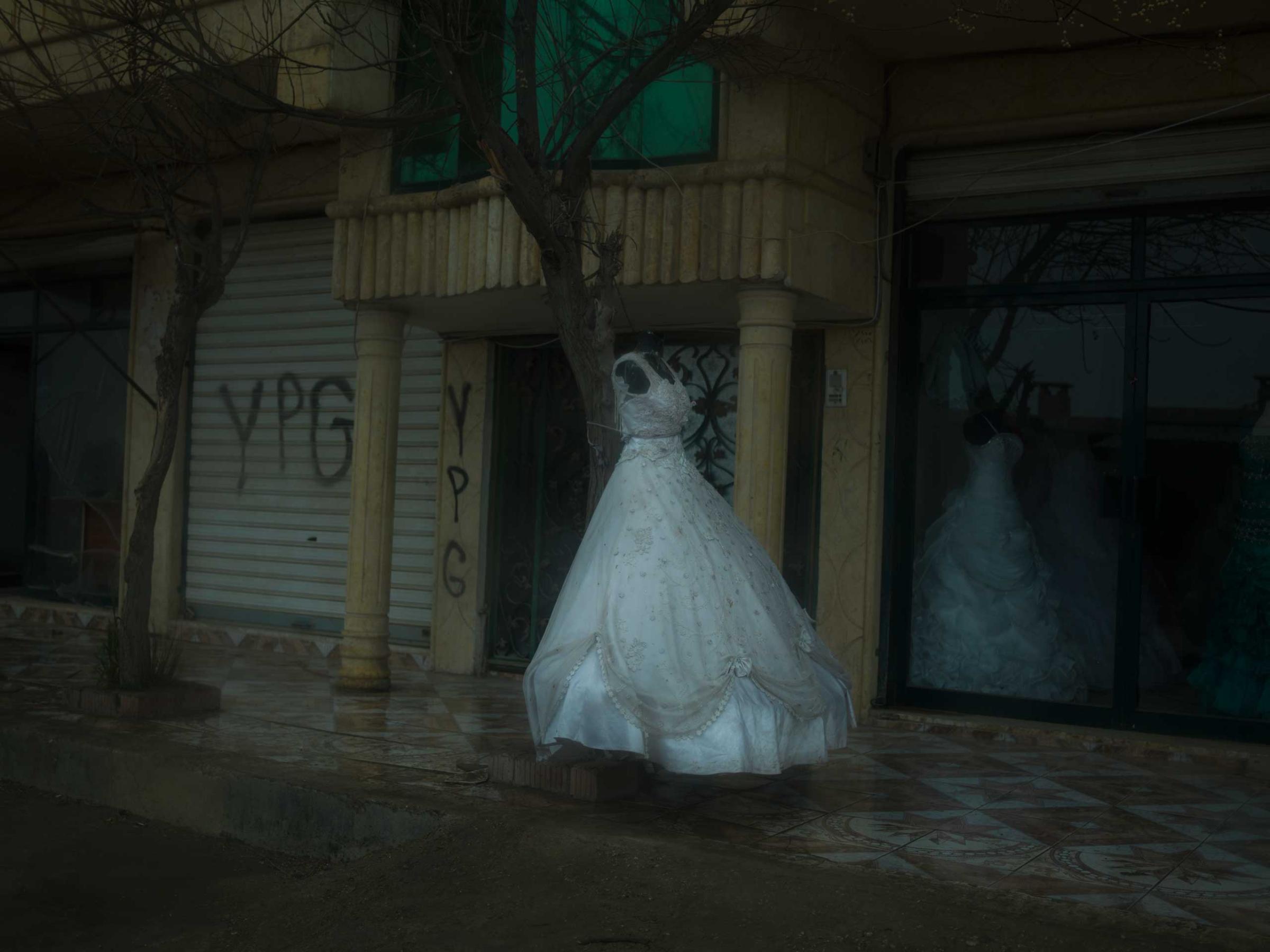
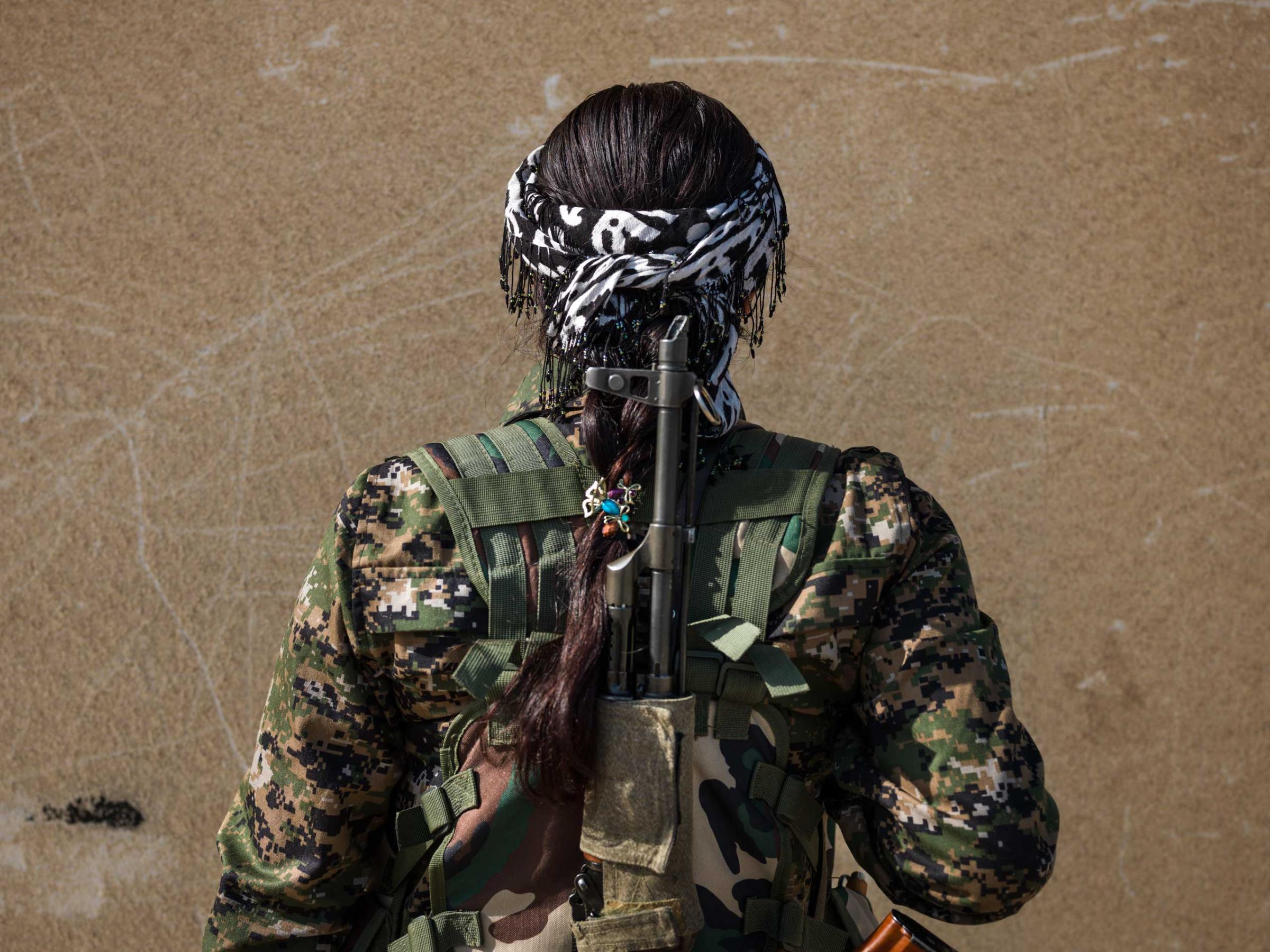
Asked what Erdogan’s response was to his argument, Demirtas grimaces and declines to answer the question. Erdogan did support Syrian rebels fighting the regime of Syrian President Bashar Assad, and allegedly turned a blind eye to many foreign militants who crossed the porous border from Turkey to join what became ISIS. “At least we are serious people, serious politicians. We don’t have any personal problems,” he says. Demirtas also called Erdogan when his mother died in 2011, the last time he can recall speaking to him on the phone.
The lack of personal contact between the country’s President and the leader of one of its major parties is a measure of the vast and growing political chasm in Turkey, where a season of violence has left disparate political camps feeling bitter and bracing for even more turmoil. Both leaders will play key roles in determining whether Turkey slips further into civil strife or is able to correct its course toward political reconciliation.
Over the past two years, millions of Turkish voters have pinned their hopes on Demirtas to chart a course out of a political stalemate. A 42-year-old human-rights lawyer who represents a section of Istanbul in parliament, he is the political standard bearer of Turkey’s Kurds, a stateless ethnic group spread across parts of Turkey, Iraq, Iran and Syria. In Turkey, Kurdish guerrillas have fought a war with the Turkish state on and off for more than three decades, leaving more than 30,000 people dead.
But Demirtas, who has cropped black hair that matches his black pants and black blazer, has appeal that transcends the Kurds. The People’s Democratic Party (known by the Turkish acronym HDP), which Demirtas co-chairs, proclaims a vision of multiethnic democracy for Turkey. Composed of a diverse coalition of left-leaning groups, the party also fielded Turkey’s first openly gay candidate for office in the country’s June election.
In that poll the HDP overcame a required threshold of 10% of the national popular vote and entered parliament for the first time. The party’s rise helped to deny Erdogan’s ruling Justice and Development Party (AKP) a majority in parliament for the first time over its more than decadelong rule. It was a moment of euphoria for those in Turkey who see Erdogan as an increasingly authoritarian leader.
The opposition’s joy did not last long. Following the election, the country’s four top political parties failed to form a ruling coalition, and Erdogan called for a snap election that took place on Nov. 1. It was a gamble for the ruling party, a bid to regain single-party control. In the interim, a series of bombings and other attacks took a toll on Turkey — and on the political opposition and HDP in particular. A twin suicide bombing at an opposition rally in Ankara in October was the deadliest in the country’s recent history, killing more than 100. Among the apparent targets were members of the HDP.
Still reeling from the bombings, Turkish voters returned to the polls and voted to restore the AKP’s majority, heralding at least another four years of dominance by the party and Erdogan. For some, the reversal was evidence of Erdogan’s political genius — and the lingering gratitude for his success steering Turkey’s economy. For his critics, it heralded an era of unchecked power for a ruling party that has shown itself increasingly intolerant of disagreement.
The HDP still managed to win the 10% of the popular vote it needed to enter parliament, but took a diminished share of seats in the Grand National Assembly (59, down from the 80 it won in June). Demirtas blames the dramatic reversal in the election results on an atmosphere of fear and violence — an atmosphere he says Erdogan encouraged. In the AKP’s November victory, the ruling party even won votes back from conservative Kurds who had supported the HDP in June.
Following the bombings, the HDP canceled all large campaign rallies and tightened security around Demirtas. During the interview in his Diyarbakir office, a handful of muscular bodyguards sat and stood in the entryway outside his office, keeping close watch on visitors. In an adjacent room, aides and party officials sat sipping tea and flicking at their phones in the dark, hunching their shoulders against the November cold.
“He used the fear of violence as a weapon. This is how he rallied society around himself,” Demirtas says of Erdogan. “Just like after Sept. 11 in the U.S., people began to support Bush more. After the attack in Ankara, people were afraid. They gathered around Erdogan.”
Demirtas also blames the government for failing to rein in the ISIS militants who investigators believe were behind the Ankara bombing and another attack in the border town of Suruc in July that killed at least 33 people, most of them volunteers heading to aid the Syrian Kurdish border town of Kobane, which withstood a siege by ISIS last year. “The target was not Turkey. [ISIS] does not see us as Turkish citizens, we are something else. We were the ones targeted by [ISIS], not Turkey itself,” he says.
The Turkish government rejects the suggestion that it has ignored or colluded with ISIS, and says it is fighting a two-front war against both the terrorist group and the militants of the Kurdistan Workers’ Party (PKK), a Marxist-Leninist guerrilla organization that is designated a terrorist group by both Turkey and the U.S.
After a few years of peace talks, the PKK renewed attacks against Turkish police and security forces over the summer, and the Turkish government restarted air strikes on PKK camps in Iraq. Turkey also entered the war in Syria, striking ISIS but also firing on Syrian Kurdish positions. Inside Turkey, some Kurdish towns and villages entered a state resembling open revolt, with trenches and barricades put in place against the military and security forces.
That puts Kurdish politicians in Turkey like Demirtas in an awkward position, the bridge between the Kurdish movement, including armed elements fighting across the border in Syria and Iraq, and Turkey’s electoral politics. His own brother is a member of the PKK, currently fighting ISIS militants in northern Iraq, he says. He claims they haven’t spoken in over a year and a half because of the war. Demirtas himself nearly joined the PKK as a teenager — which would have forestalled any chance of a political career — but his contact, a militant recruiter, was arrested. He instead went on to law school in Ankara and a career in official politics.
“I am in charge of administering one of the most difficult parties in the world,” Demirtas admits. But, he continues, “We have our principles. We are against armed struggle and against violence. We are also against the state’s violations. We defend universal human rights.”
As he spoke, Turkish warplanes could be heard overhead. The jets had been roaring over Diyarbakir all day, a reminder of the wars just across the border in Syria and Iraq. It is the tremors of those conflicts that Demirtas, his allies and Turkey’s government have to keep at bay — if they can ever work together.
More Must-Reads from TIME
- Why Biden Dropped Out
- Ukraine’s Plan to Survive Trump
- The Rise of a New Kind of Parenting Guru
- The Chaos and Commotion of the RNC in Photos
- Why We All Have a Stake in Twisters’ Success
- 8 Eating Habits That Actually Improve Your Sleep
- Welcome to the Noah Lyles Olympics
- Get Our Paris Olympics Newsletter in Your Inbox
Contact us at letters@time.com